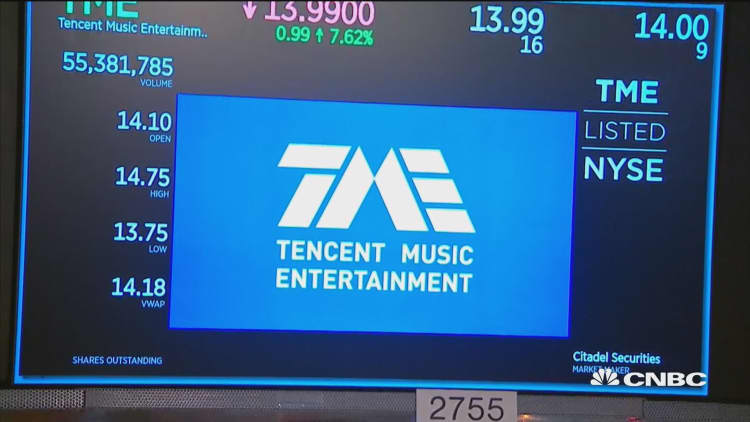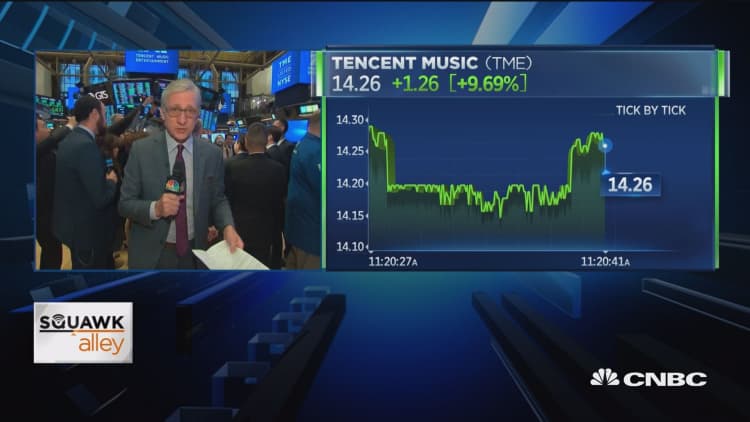Let's call this one "Disaster averted." Tencent Music. the China-based streaming app, priced its IPO at the NYSE at $13, the low end of the range, opened on Wednesday at $14.10 and pretty much stayed there all day, closing at $14.
The big story is that the deal got done at all. It was supposed to come in October, but the company postponed it, citing the global market selloff at that time. Those weak market conditions have continued, along with some signs China is slowing, but this time the company decided to go ahead with the deal regardless.
Last week's IPO action didn't help alleviate the jitters. Moderna, one of the largest biotech IPOs ever, backed by a promising new technology, priced at $23 last week and promptly nosedived to around $18. Though it is in a different space, traders were nervous the market volatility would adversely affect Tencent.

Given all the volatility, even pricing at the lows and closing in positive territory would have to be considered a successful first day of trading. Still the company has taken a haircut. By pricing at the low end of the range, instead of valuing the company in the $25 billion to $30 billion range as was talked about a few months ago, it came in closer to $21 billion.
Skeptics say that is shot across the bow to all those tech unicorns floating out there waiting to go public in 2019, and that we may see lower valuations than the companies want.
"There's no doubt we need to have more rational pricing," Kathleen Smith from Renaissance Capital told CNBC. The good news, she said, is the deals will likely get done, but the price will depend on market conditions.
The list of unicorns, the name given tech startups with a valuation of $1 billion or more, looking to go public in 2019 is long and getting longer and includes ride sharing apps Uber and Lyft, which have already filed their paperwork. It will also likely include data analytics platform Palantir, photo sharing app Pinterest, workplace messaging app Slack, and trading app Robinhood.
Despite the market turmoil, 2018 has been a good year for IPO deals. So far, 189 IPOs have raised $45 billion, more than 20 percent more than this time last year on both counts, according to Renaissance Capital. The billion-dollar unicorn club featured well-known names like Dropbox, DocuSign and Eventbrite.
What hasn't worked is after-market pricing. The Renaissance Capital IPO ETF, a basket of the most recent 60 large IPOs, is down 10 percent for the year.



